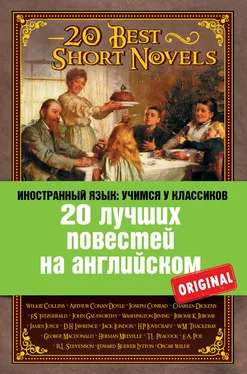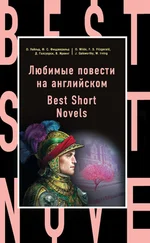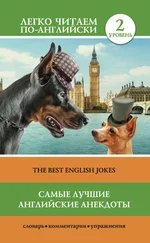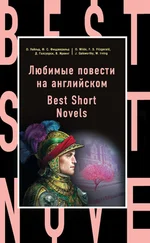Mephisto – Mephistopheles, a fallen angel, a literary character invented in the tradition of magic and demonology by an anonymous author in 1587; one of the main characters in ‘Faust’
Waterloo – a main line railway station in London, south of the Thames
victoria – a light carriage for two persons
jubey – here: wonderful
‘Carmen’ – one of the most popular operas of all time, written by George Bizet (1838–1875), a French composer
Habanera – a widely known song from the opera ‘Carmen’
the Hudson – a river and bay in New York state, named for Henry Hudson
the Tappan Zee – a part of the Hudson River on the west bank where the river widens and forms the Tappan Zee
St. Nicholas(4th century AD) – one of the most popular Christian saints, the bishop of Myra, a town in Lycia in Asia Minor
Greensburgh – a town on the Hudson River in the state of New York
Tarry Town – a village in Greensburgh town in southeastern New York state
the Sabbath – the day of rest (Sunday for Christians)
glen – a narrow valley
Sleepy Hollow – North Terry Town until 1996
powwows – conferences of North American Indians
Hendrick Hudson – Henry Hudson (1565–1611), an English navigator and explorer who tried to discover a route from Europe to Asia through the Arctic Ocean
Hessian(s) – or Chatti, a Germanic tribe from the eastern bank of the Rhine River
Connecticut – a small state in the northwest of the USA (12960 square km), one of the original thirteen states of the USA and one of the six New England states
psalmody – 1. singing psalms (religious hymns); 2. a book of psalms with musical settings.
by hook or by crook – idiom by any means (fair or not)
Cotton Mather(1663–1728) – an American religious leader and author; he believed in the existence of witchcraft, studied the subject and wrote about it.
Saardam – a town in Holland
Kentucky – a state in the south of the USA (102 624 square km) on the border with Virginia; in 1792 Kentucky became the 15th state.
Tennessee – a state to the south of Kentucky (107 040 square km); the first European explorers came to the land in 1540.
piazza – Am. veranda (from Italian )
Herculean – very strong and powerful
Mercury – in Roman religion, the god of trade and merchants
Colt – a type of a revolver invented and manufactured by Samuel Colt (1814–1868), an American arms manufacturer
Mynheer – a form of polite address to a man of Dutch origin (Mister, Sir) ( Dutch )
koek – a kind of pastry
cruller – Am. fried pastry
St. Vitus – a saint whom people in the late Middle Ages asked for cure from a neurological disease, characterized by involuntary spasmodic movements of muscles (the so called St. Vitus dance)
frigate – a fast sailing warship
heretical – contrary to generally accepted opinion or belief
goblin – in English and Scottish folklore, a small malicious fairy which inhabits houses, frightens people, makes noise, spoils things, etc.
pillions – seats for the second rider behind the rider of the horse
tête-à-tête – private talk between two persons
psalm – a religious hymn
corduroy – a thick, coarse cotton cloth
orthodox= generally accepted
gala night – a festive occasion (at the theatre, etc.)
fête – festival or holiday
the Conqueror – William the Conqueror or William I (1028–1087), the duke of Normandy, and after 1066 (the Norman Conquest of England) king of England
All-Hallows Eve – Halloween, October 31, the eve of All Saints’ Day, a religious holiday for some Christians and a secular celebration for the majority
Midsummer – Midsummer’s Eve, June 21, a holiday celebrating the longest day of the year
farcical – adj from farce – a play with ridiculous situations that make people laugh
days of yore – long ago
Freemasons – a secret order, the largest secret society in the world; its teachings include esoteric wisdom, mysticism and some religious beliefs of the past.
curate – a clergyman who helps a parish priest
MS= manuscript
lessee – a person who uses land, a house, etc. on a lease
Surrey – a historic county west of London on the River Thames
penny – a British bronze coin (until 1971), 1/12 of a shilling
quart – 1.14 litre
tarpaulin – waterproof canvas
Edward IV(1442–1483) – king of England, one of the main participants in the Wars of the Roses
abbot – the head of an abbey (monastery)
Waterloo – the Waterloo Battle (1815), the final defeat of Napoleon in the battle with the combined European forces
Lord Napier – Sir Charles Napier (1786–1860), a British admiral and commander of the Baltic Fleet
Читать дальше
Конец ознакомительного отрывка
Купить книгу












